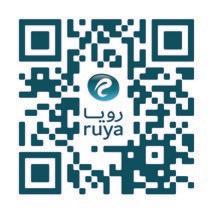FINANCE IN 2025:
GROWTH, INNOVATION, AND NEW FRONTIERS
Islamic finance institutions integrating sustainability with Shariah principles will be well-positioned for future growth
Ibrahim AlMheiri
Head of Islamic Banking at Mashreq
AS Islamic finance moves into 2025, it is poised for expansion, innovation, and greater global influence. With rising demand for Shariahcompliant products, key markets across the GCC and beyond are shaping the industry’s future.
EXPANDING
MARKET FRONTIERS
While the UAE and GCC remain the global leaders in Islamic finance, new markets are making substantial strides. Pakistan is undergoing a complete transformation, with a mandated shift to full Islamic banking by 2028. Egypt’s Islamic banking penetration, currently at five per cent is growing rapidly, while Türkiye aims for a 15 per cent market share by the end of 2025.
Additionally, African and Southeast Asian markets are emerging as key areas for expansion. Countries such as Indonesia and Malaysia continue to drive Islamic banking growth through progressive regulatory frameworks and technological integration. African nations, particularly Nigeria and Sudan, are seeing increased adoption of Islamic finance due to rising consumer demand and supportive government policies.
THE DIGITAL TRANSFORMATION OF ISLAMIC FINANCE
Technological advancements are revolutionising the sector, making it more efficient and customer-centric. Blockchain enhances security and transparency, while smart contracts streamline complex processes such as Sukuk issuance. Asset tokenisation is increasing liquidity,

While the UAE and GCC remain the global leaders in Islamic finance, new markets are making substantial strides. Pakistan, Egypt, Türkiye, African and Southeast Asian markets are emerging as key areas for expansion.”
Islamic Finance in the UAE: 50 Years of Evolution and Innovation

The integration of AI, blockchain, and fintech solutions will further enhance financial inclusivity, making Islamic banking more accessible to a wider audience
Kushmita Bose
ISLAMIC finance has emerged as a cornerstone of the global financial system, offering ethical, Shariahcompliant alternatives to conventional banking. Built on principles of risk-sharing, asset-backed financing, and ethical investments, the sector has witnessed remarkable growth worldwide. Now, as Islamic finance moves into 2025, the industry is poised for expansion, innovation, and greater global influence, with the UAE standing at the forefront of this transformation.
The history of Islamic finance in the UAE dates back to 1975 with the establishment of the country’s first Islamic bank. Over the last five decades, the sector has grown exponentially, encompassing fullfledged Islamic banks, Islamic banking windows within conventional banks, Takaful (Islamic insurance), and the ever-expanding Sukuk (Islamic bonds) market.
The UAE has ranked among the top three Islamic economies
worldwide for three consecutive years, according to the 2022 State of the Global Islamic Economy Report. The UAE also secured the fourth position globally in Islamic financial markets by assets, as per the 2023 Islamic Finance Development Indicator. These milestones reflect the nation’s commitment to fostering an ecosystem that supports Shariahcompliant financial activities.
The Role of Technology in Shaping Islamic Finance The rapid advancement of technology is revolutionising Islamic finance, making it more efficient, transparent, and customer-centric. Blockchain technology has significantly enhanced security and transparency in transactions, while smart contracts are streamlining complex processes such as Sukuk issuance. Asset tokenization is increasing liquidity in the market, making Islamic financial instruments more accessible to a broader investor base. Additionally, the rise of fintech solutions is catering to the growing demand from Millennials and Gen Z consumers who prefer seamless digital experiences. AI-driven robo-advisors, mobile banking, and digital wallets are improving financial accessibility, while gamified financial tools are helping younger generations develop better financial habits within the framework of Islamic finance.
A Strong Regulatory and Economic Environment
The UAE’s commitment to economic policies and legislation has
Mashreq Al Islami is responding with innovative offerings such as Mashreq Vantage, the only loyalty programme covering the customer’s entire banking relationship by an Islamic bank. AI-powered hyperpersonalisation is expected to further enhance customer engagement and financial planning.”
allowing fractional ownership in real estate and Sukuks.
Mashreq Al Islami is leading this transformation, offering fully digital onboarding, mobile banking, and digital selfservice channels. Virtually all retail banking transactions carried out last year were digital, and the bank is set to launch Mashreq Al Islami NEO for massmarket customers and NEO BIZ for businesses. With artificial intelligence and big data analytics playing an increasing role, personalised Shariah-compliant financial solutions will become more accessible to consumers.
ETHICAL AND ESG INVESTMENTS
Islamic finance aligns with ESG principles, attracting a new wave of socially conscious investors. Green Sukuks are financing sustainable projects, supporting the UN’s Sustainable Development Goals. Increased transparency is driving the adoption of ESG-aligned rating systems to assess Shariah-compliant investments.
GCC regulators are encouraging ESGfriendly financial products, laying a foundation for responsible investing. Islamic finance institutions integrating sustainability with Shariah principles will be wellpositioned for future growth. Innovative
financial products such as impact Sukuks and sustainability-linked instruments are gaining traction, offering investors ethical opportunities with measurable social and environmental impact.
ENGAGING THE NEXT GENERATION
Millennials and Gen Z consumers are key drivers of Islamic finance, demanding seamless digital experiences. Mobile banking, digital wallets, and AI-driven robo-advisors are enhancing financial accessibility. Gamified financial tools are helping younger generations develop better financial habits.
Mashreq Al Islami is responding with innovative offerings such as Mashreq Vantage, the only loyalty programme covering the customer’s entire banking relationship by an Islamic bank. AI-powered hyperpersonalisation is expected to further enhance customer engagement and financial planning.
Additionally, the growing trend of embedded finance is allowing Islamic financial services to integrate seamlessly into everyday digital experiences, making banking more convenient for younger users.
COLLABORATION AND STRATEGIC PARTNERSHIPS
Alliances between traditional banks and fintech firms will open opportunities in digital payments, AI-driven risk assessments, and blockchain-based financial services. Fintech hubs focused on Shariah-compliant solutions will drive new business models and technological advancements. The rise of regulatory sandboxes in key markets is also providing a platform for financial institutions to test and refine new digital Islamic finance solutions before fullscale implementation.
Islamic finance is set for strong growth, fueled by market expansion, digital innovation, ESG investments, and next-generation consumers. By embracing these opportunities while adhering to Shariah principles, institutions can strengthen their role in the global financial system. As the sector evolves, collaboration, digitalisation, and sustainability will remain central to its progress. — Ibrahim AlMheiri is Head of Islamic Banking at Mashreq.
played a crucial role in the success of Islamic finance. The introduction of dirham-denominated Islamic Treasury Sukuk has encouraged greater sector participation, driving growth and solidifying the UAE’s position as a global leader in the industry.
One of the most notable developments has been the rise of Green Sukuk, which was introduced in 2019 as part of the UAE’s broader sustainability agenda. Today, the UAE ranks first in the region and second globally in outstanding sustainability sukuk, reinforcing its position as a key player in the global sustainable finance landscape.
Islamic Finance and ESG Islamic finance is inherently aligned with Environmental, Social, and Governance (ESG) principles, attracting a new wave of socially conscious investors. The prohibition of unethical investments, combined with the focus on real economic activities and risk-sharing, makes Islamic finance an ideal choice for sustainable and responsible investing. As the world moves towards a greener future, the role of Islamic finance in driving sustainable develop ment is expected to grow further.
As Islamic finance continues to evolve, the UAE is well-positioned to lead the industry into the next phase of growth. With a strong regulatory framework, cuttingedge technological advancements, and a commitment to sustainabili ty, the country is shaping the future of Islamic finance globally. The in tegration of AI, blockchain, and fintech solutions will further en hance financial inclusivity, making Islamic banking more accessible to a wider audience.
Over the past 50 years, Islamic finance in the UAE has transi tioned from a traditional banking model to an innovation-driven powerhouse. As it moves forward, the sector will continue to play a pivotal role in the national econo my, reinforcing the UAE’s vision of becoming a global hub for the Islamic economy. The next chap ter of Islamic finance promises even greater expansion, ethical investing, and sustainable growth, marking an exciting era for both the industry and its investors.



